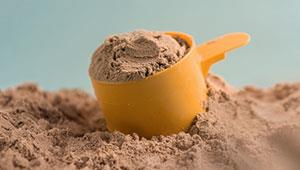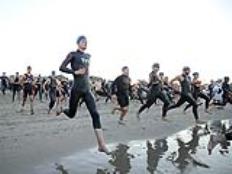
That's a lot of time to be away from your work, friends and family. So how do you balance training for Ironman with time for your spouse, family and career?
The Early Bird Keeps His or Her Job and Spouse
If you aren't a morning person, find the inner early bird in you. Training for an Ironman is easiest in the early morning. Not only are most masters swim workouts in the wee early morning hours, but so is everything else you need for a successful training day.
More: 4 Tips to Survive Ironman Training
It's cooler in the morning so if you live in Texas or Florida, in the middle of summer, go for that early morning run or bike ride to avoid the skin-toasting sun. Plus, there's less traffic at the crack of dawn making for a much safer bike ride.Also, you'll feel great for the rest of the day. There's nothing like working out in the morning to set your body up for a great day of positive mental attitude.
Share Your Passion
A family that swims, bikes, and runs together, stays together. If you're lucky enough to have a spouse who also likes the sport of triathlon, you're set for life. Chances are he or she will understand your constant smelly clothes and constant hours away from the house.
More: 9 Triathlons in Vacation Destinations
If not, pick a race that's a family destination. For instance, the Rohto Ironman at Disney World is a perfect race for the entire family. While you're out there in Florida racing for a personal best, your family can be having a personal best day enjoying the rides at the most magical place on earth.
You Can Stop at Just One
After finishing an Ironman, a lot of athletes tend to want to sign up for another race. After all, you're on the top of the world, Iron-fit and life is good—very good—so why stop the dance?
Graham Fraser, the race director who started and, at one time, owned most of the North American Ironman races, wonders why anyone would race an Ironman more than once every five years. He thinks of the IM races as something special that should be done only occasionally with very long periods of rest and recovery.
For those like the amateur Czech triathlete who flew around the world in 2010 and raced almost all of the Ironman races, including the Ironman World Championships in Kona, Ironman racing can easily become a lifestyle. But it doesn't have to be all IM all the time.
Every so often, stop and smell the Olympic-distance roses and perhaps you may find that the shorter races offer the same thrill, but at a quarter of the cost and, more importantly, a quarter of the time spent being hot, sweaty, smelly and away from your friends and family.
More: 4 Rules for Setting the Right Race Goals
 Search for your next triathlon.
Search for your next triathlon.








Discuss This Article